Germany: Berlin
Germany
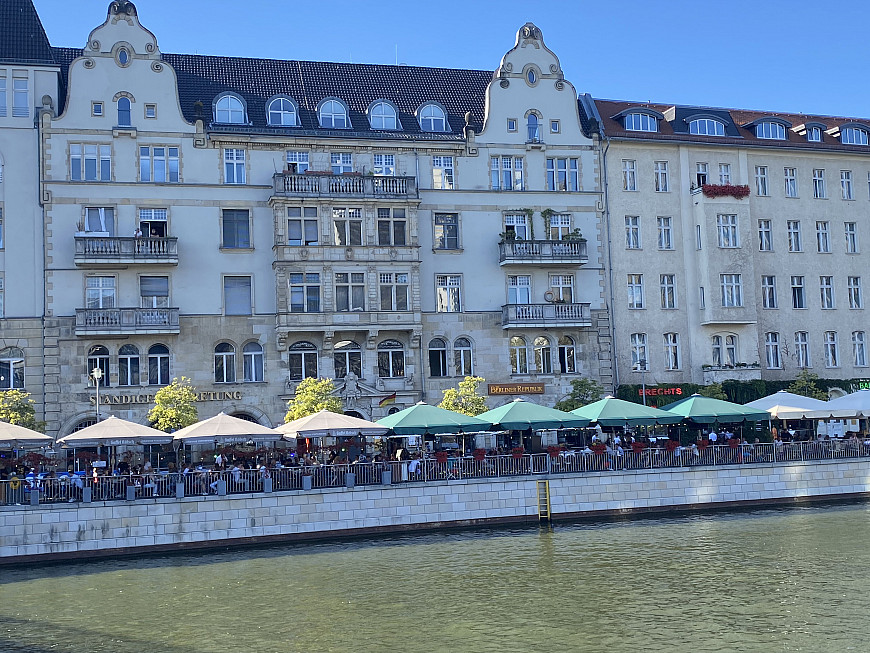
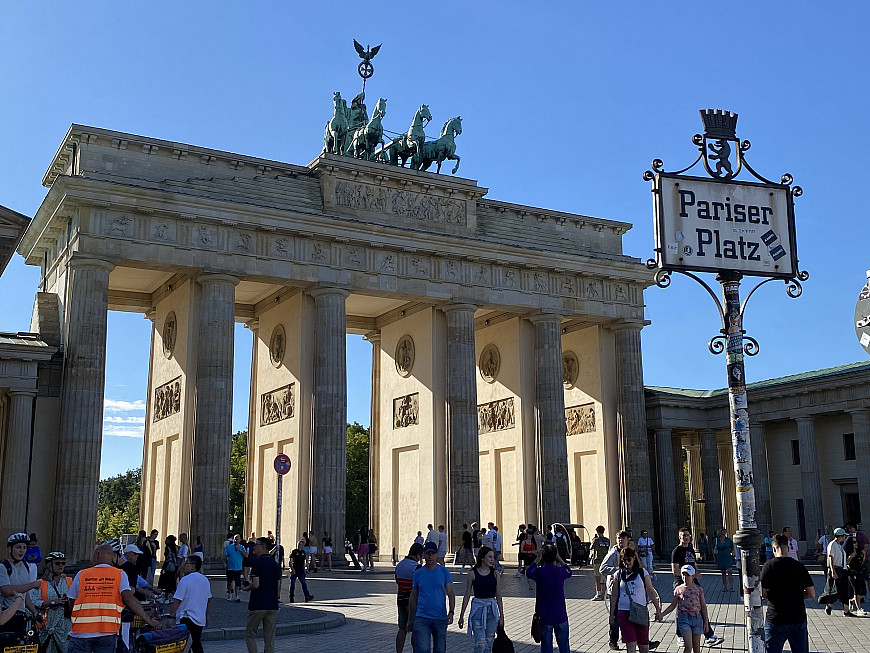
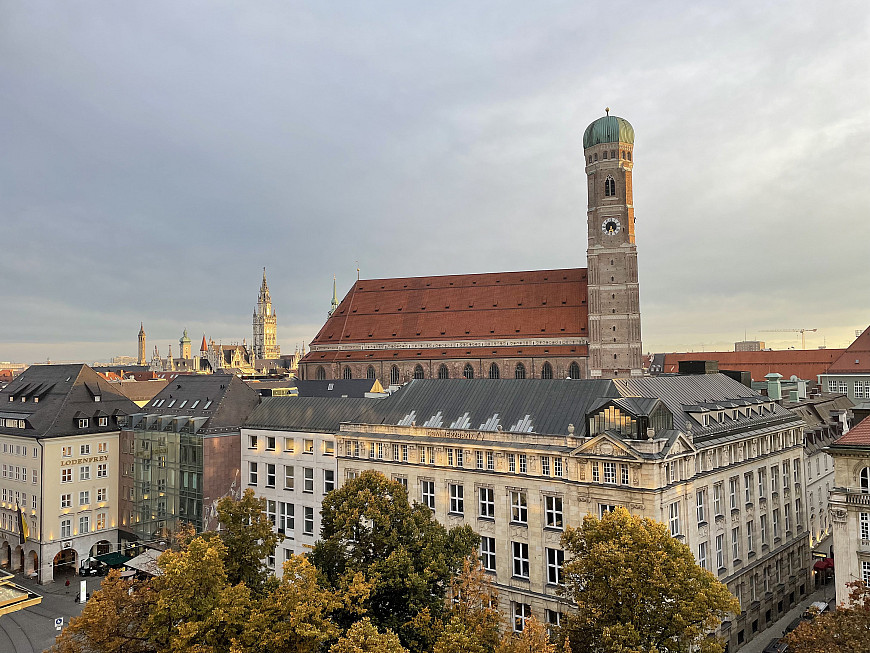
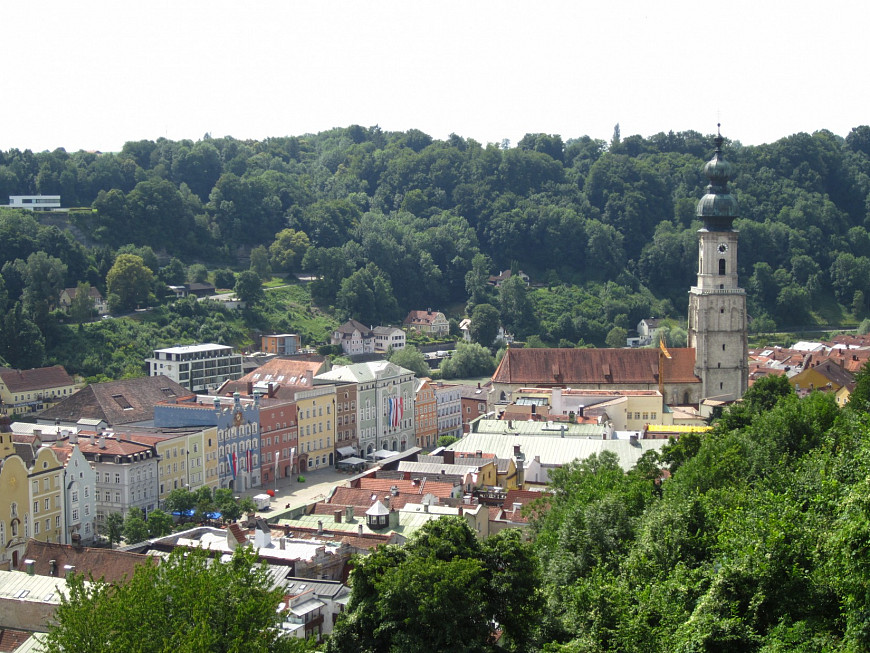
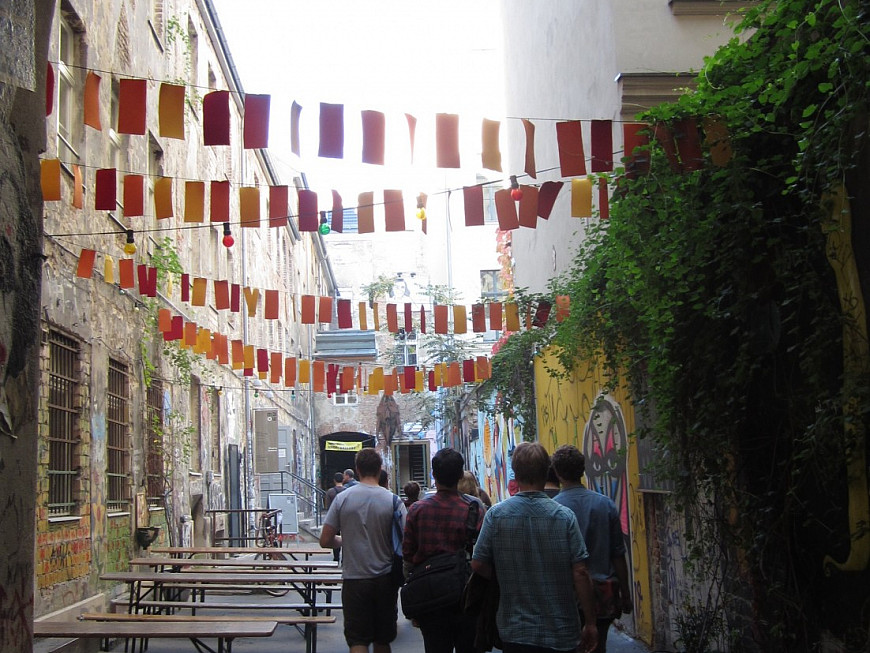
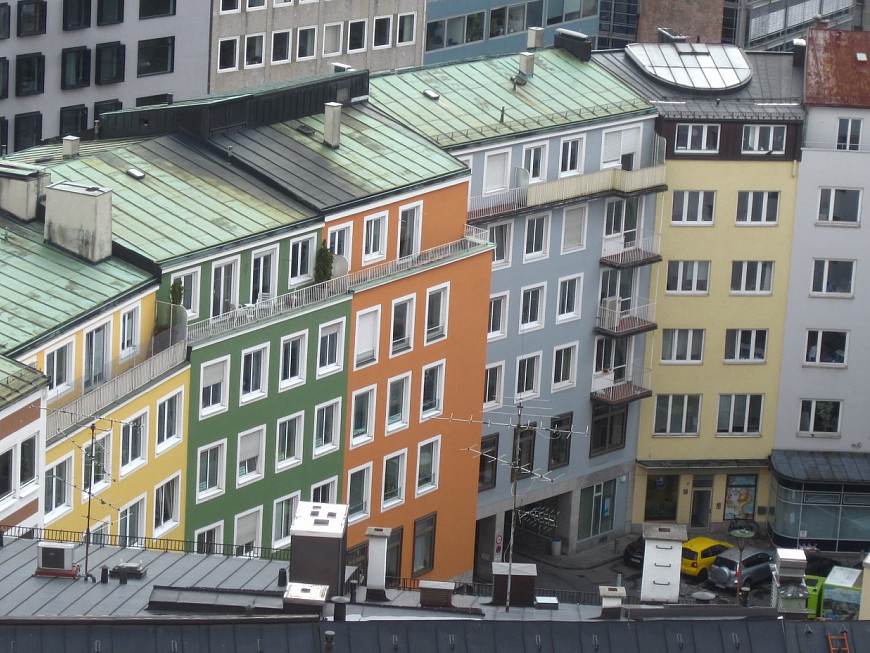
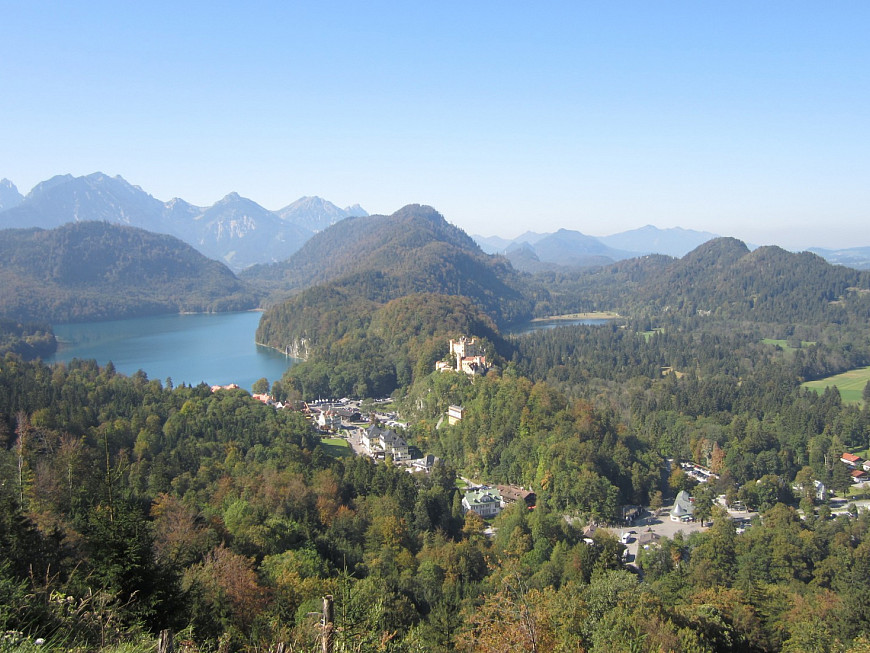
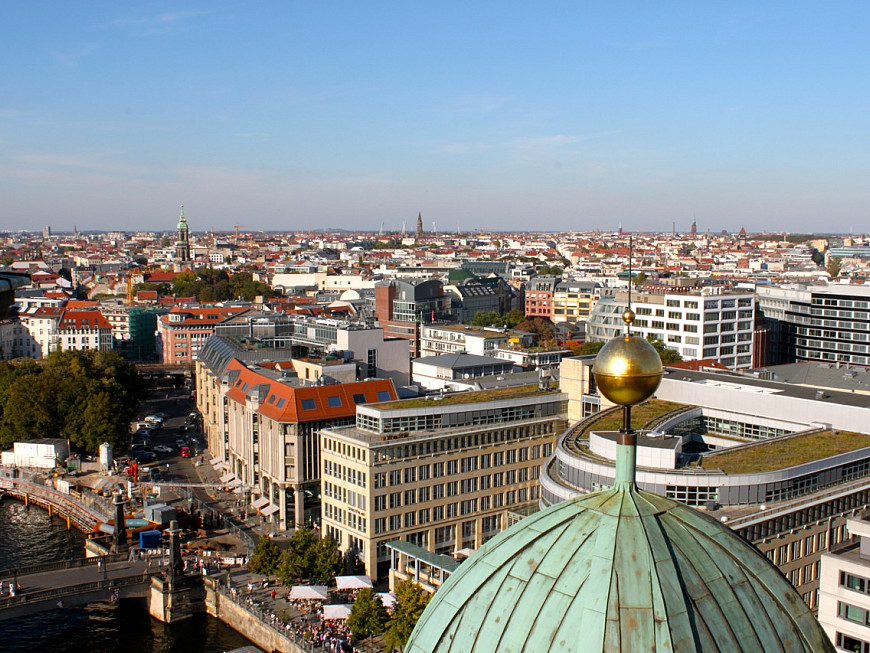

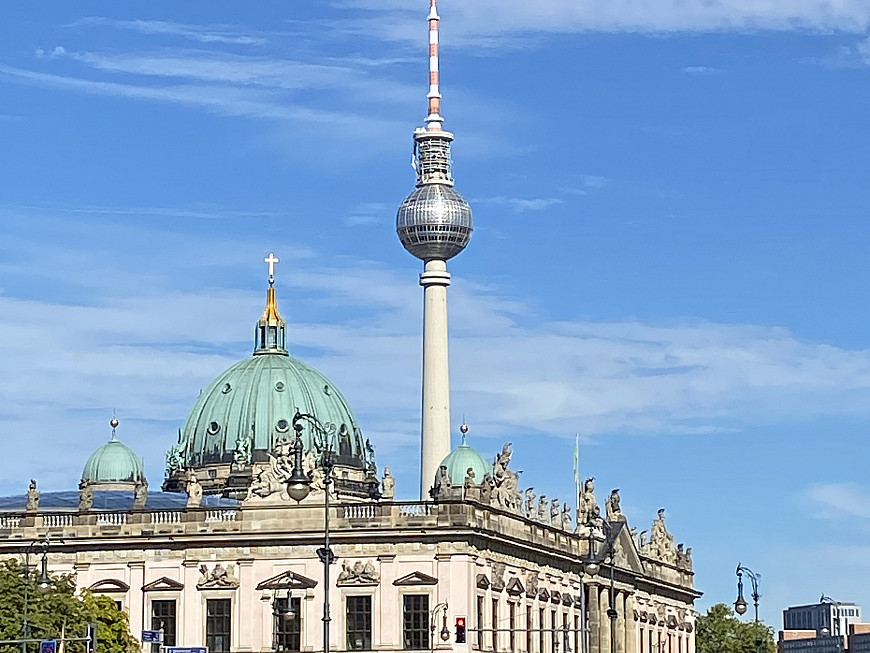
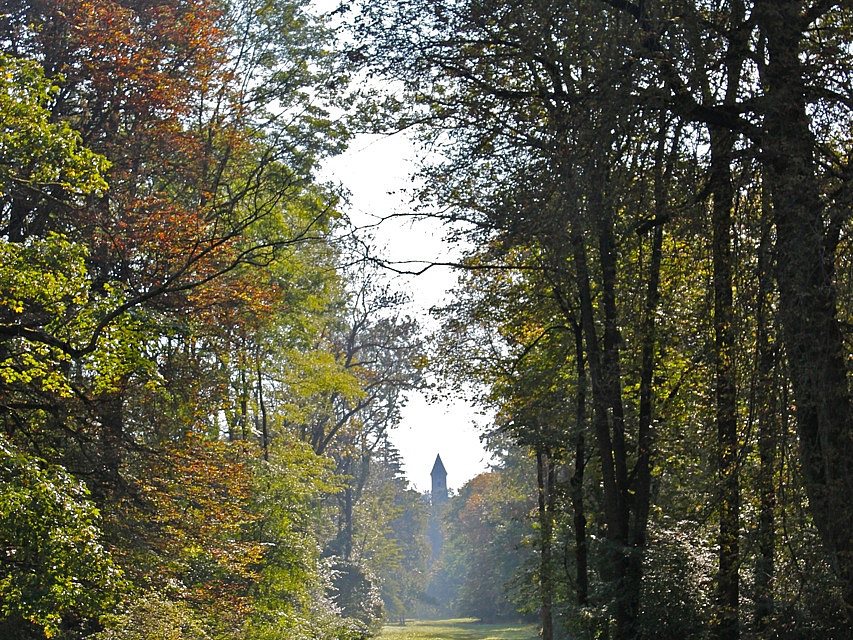

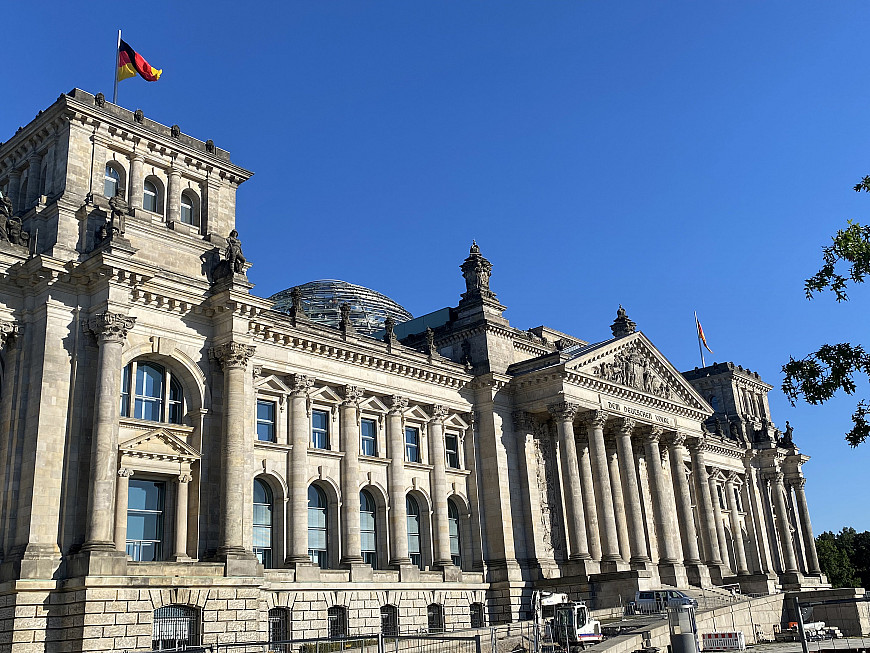

| Program Snapshot | |
| Semester: | Fall |
| Offered: | Fall 2025 (Chemistry), Fall 2027 (Data Science) |
| Estimated Dates | Early September to mid December |
| Program Focus: | Regional Area Study with optional Chemistry or Data Science emphasis (depending on year) |
| Prerequisites: |
For those students on the Chemistry program wishing to take CHEM 330 instead of IS 263, there is a pre-req of CHEM 220. GPA of 2.75 or higher is expected. Students must satisfy the Words and Numbers CORE requirement before participating in an overseas program. |
| Housing: | Apartments |
| Fall 2025 Program Leader |
Julio de Paula |
| Fall 2027 Program Leader |
Ellen Seljan
|
Program Design
In cooperation with the Council for International Educational Exchange (CIEE), Lewis and Clark offers a program of study focusing on the culture, history, art, music, architecture, and politics of Berlin and Germany, as well as urban studies.
Every other iteration of the program will have a Chemistry option. Students with the appropriate pre-req (Chem 220) may substitute Chem 330 for the urban studies course. Every other iteration of the program will have a Data Science option. Students may substitute the Data Science course for the urban studies course.
Excursions include trips to local and regional sites of interest such as Dresden, Potsdam and Leipzig. Students live in apartments.
Berlin was once called the heart of Europe, and it remains a significant center of European economic and cultural development. Situated between the East and West, Berlin is a mix of people from different cultures and social systems. People from all over the world have been calling Berlin home for many years. This unique mixture gives the city a kind of rough charm, which makes Berlin particularly inviting for students. Stroll through the streets of Berlin and around one corner you’ll see soaring modern buildings that incorporate cutting-edge sustainable technology. Around the next corner, you’ll see art galleries, cafés, and shops lining old cobblestone streets. As a city that has been built and rebuilt over the past century, Berlin remains a city of contrasts—and of innovation.
About the 2025 Program Leader, Julio de Paula: After 16 years at Haverford College, I moved to Lewis & Clark College in 2005. While on professional leave from 2010 to 2012, I was a Program Director in the Chemistry Division of the National Science Foundation. I have taught courses in general chemistry, physical chemistry, inorganic chemistry, instrumental analysis, biophysical chemistry, bioinorganic chemistry, environmental chemistry, nanoscience, and writing. To date I have mentored 52 undergraduate students in research supported by over $3 million in single-investigator and collaborative grants. I have received a Christian and Mary Lindback Award for Distinguished Teaching and a Henry Dreyfus Teacher-Scholar Award. In 2015 I was named a Cottrell Scholar by the Research Corporation for Science Advancement.
About the 2027 Program Leader - Ellen Seljan: Dr. Seljan teaches courses in American politics, public policy, research methods, and data science. Her research is in the field of state and local politics, spanning the policy domains of fiscal institutions and election administration. Previous work on fiscal institutions includes analysis of tax and expenditure limits, supermajority requirements to raise taxes, and assessment districting. Her research on election administration has examined campaign finance enforcement and the effect of automatic voter registration laws.
Academics
Requirements Fulfilled:
General Education - This program fulfills the Global Perspectives general education requirement for students who successfully complete 8 or more semester credits. Contemporary German History fulfills the Historical Perspectives general education requirement. Contemporary Germany: Berlin fulfills the Culture, Power and Identity general education requirement. Music and Art after Modernism fulfills the Creative Arts general education requirement.
Major Requirements: CHEM 330 may be applied to the CHEM, BCMB, or BIO major.
Credits: 16 credits (4 courses)
2025 Curriculum:
All courses are taught in English.
IS 206 Contemporary Germany: Berlin: (4 credits)
This course is an interdisciplinary exploration of contemporary Germany with a focus on key moments of transformation in the country’s political, cultural and socio-economic development. Starting with the division of the country during the Cold War, the course will cover the 1989 “peaceful revolution”, the fall of the Berlin Wall, and its impact on today’s societal and political dynamics. The course will delve into the revolutionary 1960’s which laid the foundation for female emancipation, green movements, and gender inclusivity. Berlin’s neighborhoods will serve as a learning lab where students explore the city’s diverse food scene, showcasing both traditional German culture and the influences of multiethnic traditions shaped by migration and globalization in recent decades. The students will also discover the development of the “Erinnerungskultur” (memory culture), explore Jewish life in Germany today, and learn basic German language phrases to survive their first conversations in Berlin.
IS 207 Contemporary German History: (4 credits)
This course provides an historical overview from the founding of the Kingdom of Prussia to the end of World War II. Students will learn about the rise of Prussia and delve into the eventful and tumultuous decades of German history after the founding of the federal monarchy in 1871. In the 20th century Berlin was the stage upon which a turbulent drama played out. In the 1920’s, the metropolis defined what it meant to be modern: Berlin was the intellectual epitome of a liberal republic and a glamorous café society. But that republic was unstable, and soon a fascist government destroyed this atmosphere of tolerance along with many of the great works of art and literature created by its talented freethinkers. Students will discuss both the promises and failings of the Weimar Republic in the context of the rising political extremes of communism and fascism that eventually gave way to the terror of Hitler and the Nazi Party. Finally, the course analyzes World War II, including the Holocaust and complete defeat of Germany.
IS 208 Music and Art after Modernism: (4 credits)
In this course, we will engage with music and art since the birth of Modernism, paying special attention to the last 50 years, in order to help situate what’s happening in music and art today. We will look at the frictions between genres, the battles between ‘high’ and ‘low’ art, and the influence of artists across disciplines, all of which give space for new movements to emerge. A recurring theme will include the desire for artists to reach new audiences through non-specialist modes of production, from curating and DJing to remixes and social media trends.
Students will engage in conversations about what it means to be contemporary, not only for artists today, but for audiences as well, and how these roles overlap in a socio-political context that exceeds the arts. As an extension of these conversations, we will meet with local musicians for listening sessions and we will visit exhibitions and clubs throughout Berlin. Drawing on examples from class—including videos, remixes or original music—students will produce a series of creative reflections where they explore the topics from class through a project of their own.
IS 263 Urban Studies in Comparative Perspective: (4 credits)
The course focuses on Berlin as a case study of urban governance for sustainability. It will compare local policy challenges in national and international contexts, developing a more nuanced view on the top down and bottom-up strategies of building sustainable cities. The course combines a comparative policy analysis approach with concepts of international relations studies. The objective is to unravel the concept of sustainability and study its translation into politics and policies in multi-level governance structures.
Chemistry majors may substitute the following course for Urban Studies, provided the prerequisite has been met.
CHEM 330: Structural Biochemistry (4 credits)
The structure-function relationship of biological molecules. Principles governing protein folding and methods used to assess protein structure; case studies illustrating how protein structure dictates function; DNA structure and the chemistry of protein-DNA interactions; membrane biochemistry and the dynamics of membrane organization; role of the membrane in facilitating transport, intracellular communication, and mediating the transmission of nerve signals.
The 2027 program will have an optional Data Science course, which will substitute for the urban studies course.
Excursions: The program includes trips to local and regional sites of interest to help students experience life and culture in Germany outside of Berlin. Students will have overnight excursions to Dresden and Leipzig.
Student Life
Housing: During their semester in Berlin, students will be in apartments. Each student will have their own room, furnished with a bed, desk or table, storage space, bed linens and towels. Students will share the bathroom, kitchen, and other common living spaces with other students. Students are responsible for purchasing and preparing their own meals, but the Overseas Office will give them a stipend to cover the cost of their food. Students have the option to prepare their own meals at home or eat at one of Berlin’s many inexpensive restaurants, and on weekdays, they can purchase an inexpensive lunch at one of the university cafeterias.
Extracurricular Activities: Students can find many opportunities to participate in extracurricular activities through Humboldt University. Joining a club, finding a Sprachpartner, taking a sport or dance class, attending the HUB “Orbis” program for international students, and volunteering are all excellent ways for students to fill their time outside of their classes and to meet local students.
Cost
2026-2027 Fee Breakdown*
Total Fee (includes Tuition, Program Fee, and Health & Wellness Fee): $44,791
Tuition: $35,329
Program Fee: $9,425
Health & Wellness Fee: $37**
Included in the program fee are room/housing, board/meals, and administrative fees. Not included are airfare, passport and visa expenses, primary insurance coverage, photographs, books, immunizations, and incidentals.
*Fees are updated every February for the following academic year.
**The Health & Wellness Fee supports the operations of Wellness Services staff in delivering pre-program orientation services, as well as in providing health-related consultation regarding participant health needs. All students in the College of Arts and Sciences pay a mandatory fee of $37 per semester.
Stipend: Students will receive a stipend to cover the cost of meals and transportation costs not covered by the program fee.
Estimated Airfare (Round Trip PDX to BER): $800 - $1,500
Estimated Travel Document Fees: $65 - $100*
Estimated Health Insurance Fee: $1,906
*This cost is for visa application and processing fees only. Non-US passport holders may be required to attend an in-person visa appointment and may have additional travel costs.
All students participating in overseas programs are automatically enrolled in iNext, a supplemental travel insurance program. The fee for iNext is covered in the program cost. However, students are also required to have comprehensive health insurance during their time abroad. All students participating in overseas programs, both abroad and domestic, are automatically enrolled in the College’s student health insurance program. Similar to a regular semester on-campus, students participating in overseas programs may waive enrollment in the student health insurance program if they have other comprehensive health insurance (e.g., through a parent, guardian or employer) that 1) provides coverage for them in the geographic region in which they will be studying and 2) includes mental health benefits. Find more information regarding health insurance & overseas programs.
Program Preparation
Physical Requirements:
Before applying to this program, you should assess and determine if you are physically and/or emotionally able to participate in the following physical demands required by some of this program’s activities:
- Walking or hiking up to 5 miles in a day, sometimes for two or more days in a row, sometimes on hilly, uneven, or cobbled terrain
- Climbing and descending stairs
- Using public transportation, including sometimes crowded buses or trains
- Standing for long periods during tours and site visits
- Entering into older buildings with narrow and sometimes steep staircases, at times with limited or no access to elevators
- The possibility of warm/hot temperatures while residing in locations without air conditioning, and/or cold temperatures while residing in locations with a comfort for lower indoor temperatures
- The possibility of long, busy days with little downtime and infrequent days off from program activities
If you have questions or are concerned about these or any other program activities, please contact the Lewis & Clark College Overseas & Off-Campus Programs office (overseas@lclark.edu).
Application Process: This program has a dual application process. Student must first submit a Lewis & Clark Application one year before the start of the program. Once admitted by Lewis & Clark, the students will receive instructions for submitting their secondary application to CIEE and will receive a separate notification letter of admission. Please keep a digital copy of your essays and other application materials as you may need to submit these similar materials to CIEE. Please note that this secondary application process can be as late as the semester preceding your scheduled participation.
The semester before the program, students who have been accepted will meet regularly for orientation. This orientation is meant to prepare the students for life in Berlin by exploring literature and culture, and provides an opportunity for students to learn more about the logistical details of the program.
Learn more about our application process.
Travel: Students usually fly into the Berlin Brandenburg Airport (BER), where CIEE team members will meet you and arrange transportation to your accommodations.
Visa: Students will be required to apply for a visa in order to participate in this program. More information will be provided upon admission to the program.
Country-Specific Health Information: View specific health information for people traveling to Germany.
State Department Country Information: Visit the State Department’s Germany page.
Germany, Berlin
Overseas and Off-Campus Programs is located in room 206 of Albany Quadrangle on the Undergraduate Campus.
MSC: 11
email overseas@lclark.edu
voice 503-768-7295
fax 503-768-7300
Director Blythe Knott
Overseas and Off-Campus Programs
Lewis & Clark
615 S. Palatine Hill Road
Portland OR 97219
